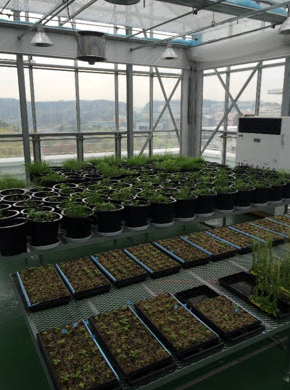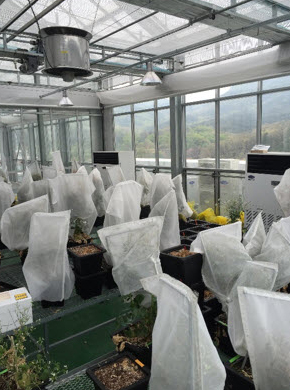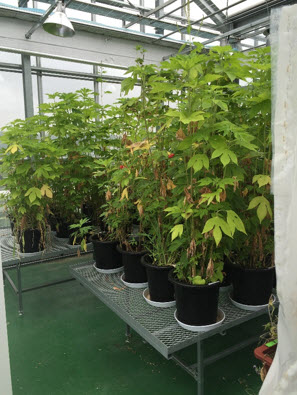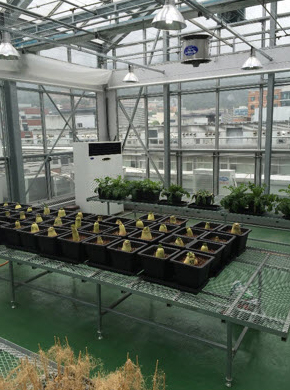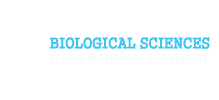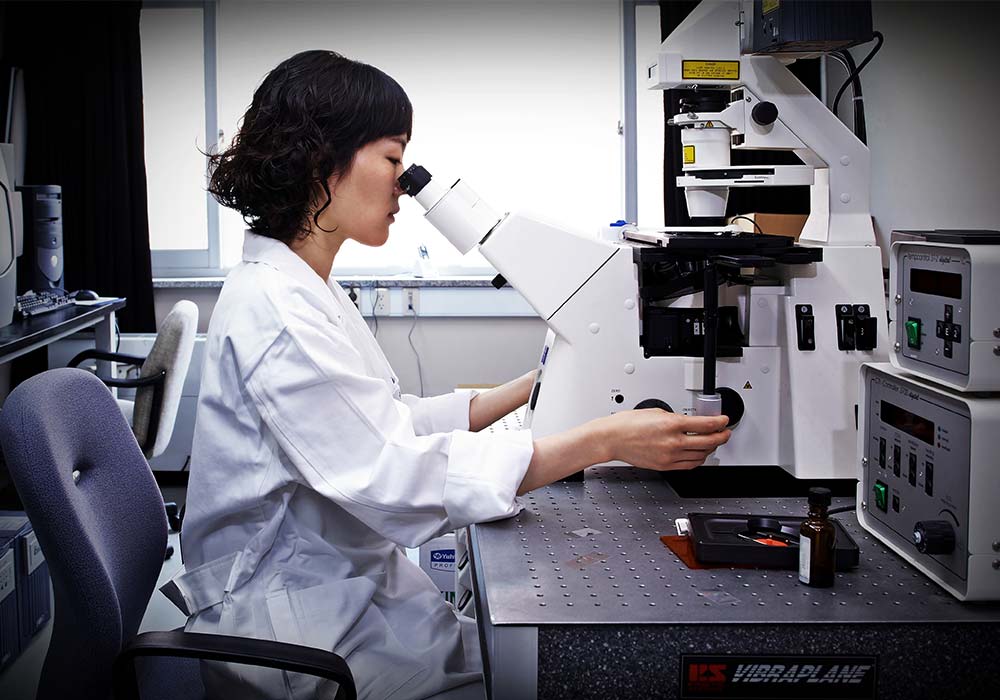
Core Facilities, Department of Biological Sciences
- Head Professor Kim, Jong-Seo
- Contact +82-2-880-2698, 4009
- Staff Son, Jia / Keum YoonJae
- Read more
The purpose of this common equipment room is to help those who are doing research on life science.
We are here to provide best quality services by maintaining up-to-date equipment and establishing an efficient operating system.


We are here to provide best quality services by maintaining up-to-date equipment and establishing an efficient operating system.


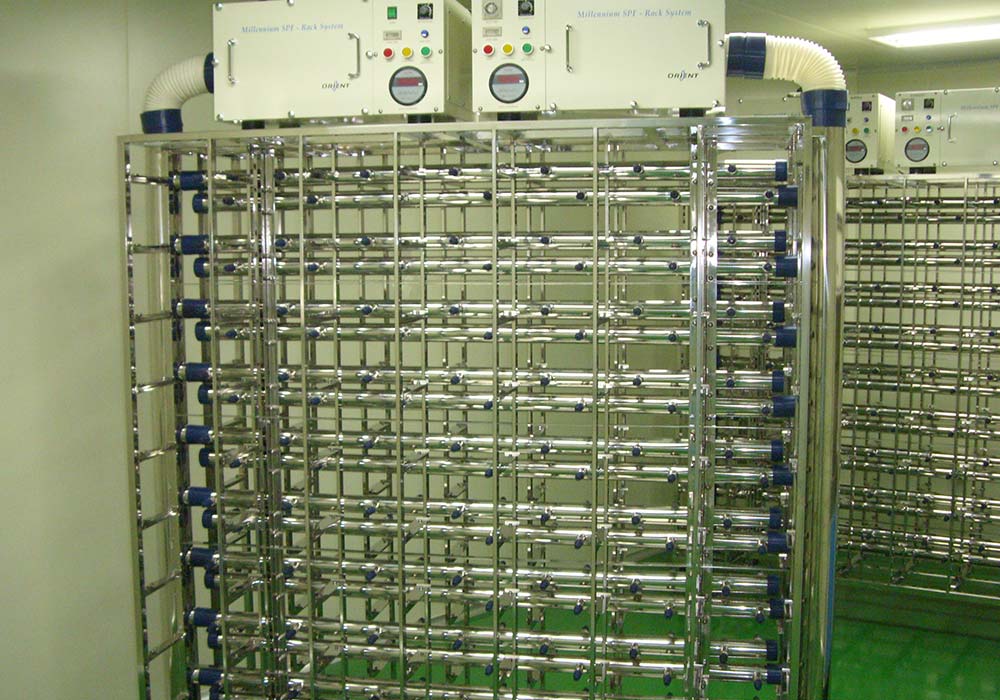
SPF Animal Facility
- Head Professor KIM, HYOUNG
- Contact +82-2-880-6692 / 500-B220
- Staff HEO, YOUNG GEOL / HAN, JOOYEUN
- Read more
This Specific Pathogen Free (SPF) facility has been established in 2007 to support experiments on mice, which is the major animal being used in modern biological science research.
Our SPF facility houses mice at a perfectly specific pathogen free condition, therefore allowing world standard research. In particular, we provide the best environment for researches involving transgenic mice
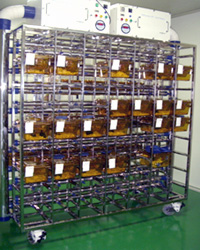
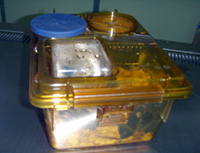
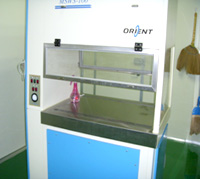
Our SPF facility houses mice at a perfectly specific pathogen free condition, therefore allowing world standard research. In particular, we provide the best environment for researches involving transgenic mice

MSRS Description
We provide complete physical barriers for laboratory animals to any types of contaminants. We have implemented newly developed technologies such as pre-filters, HEPA filters, and carbon filters to keep the air inside the cage as clean and sterile as possible, while minimizing emergence of mutations arising from contamination.
Features of MSRS
- Promotes efficient use of space and improvement of breeding environment
- Suppresses dispersion of origin of contamination and protects researchers and lab animals
- Prevents cross contamination by providing barriers
We provide complete physical barriers for laboratory animals to any types of contaminants. We have implemented newly developed technologies such as pre-filters, HEPA filters, and carbon filters to keep the air inside the cage as clean and sterile as possible, while minimizing emergence of mutations arising from contamination.
Features of MSRS
- Promotes efficient use of space and improvement of breeding environment
- Suppresses dispersion of origin of contamination and protects researchers and lab animals
- Prevents cross contamination by providing barriers

Features of MSRS Mouse cage set
Prevents cross contamination between the researcher and animals by completely separating the inner and outer environments.
Compatible with pneumatic steam sterilization. Made with nontoxic Ultem material that has resistance to heat and chemicals. An automatic door lock system will activate when the cage set is isolated from the body of MSRS.
Prevents cross contamination between the researcher and animals by completely separating the inner and outer environments.
Compatible with pneumatic steam sterilization. Made with nontoxic Ultem material that has resistance to heat and chemicals. An automatic door lock system will activate when the cage set is isolated from the body of MSRS.

MSWF-100 Description
This equipment prevents cross contamination that frequently occurs during cage exchange and litter replacement
This equipment prevents cross contamination that frequently occurs during cage exchange and litter replacement
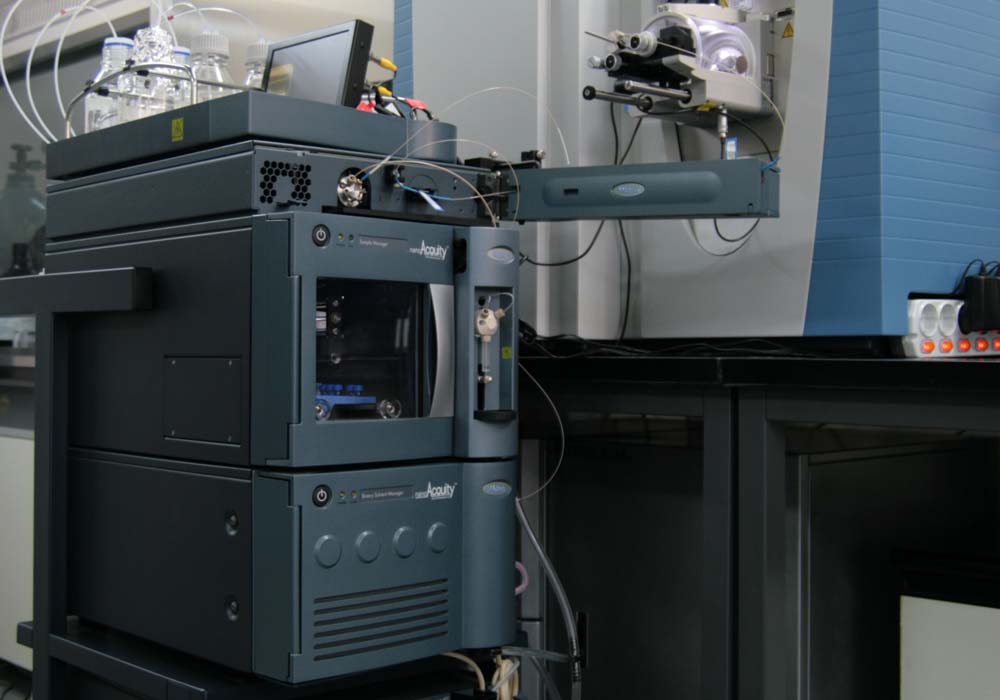
Proteomics Core Facility
- HeadAssistant Professor Jong-Seo Kim
- Contact +82-2-880-4434 / 504-506
- Staff Kim, Jinil
- Read more
질량분석기 (mass spectrometry, MS)는 생물학 연구에 중심을 이루는 단백질을 동정하거나 변형부위를 밝혀낼 수 있을 뿐 아니라 높은 정확도로 정량할 수 있는 매우 중요한 분석장비입니다. 단백질 질량분석을 위해 단백질을 in-gel 혹은 in-solution 상태에서 트립신 효소로 가수분해하여 펩타이드로 만들고, 이 펩타이드를 액체크로마토그래피로 분리/농축하여 분석 감도를 높임과 동시에 질량분석기로on-line 검출하는 방식을 LC-MS based proteomics라고 합니다. 질량분석기는 펩타이드 (precursor ion)의 분자량을 측정한 후에, 그 펩타이드를 기체상에서 조각내어 그 조각들 (daughter ions)의 분자량을 측정합니다. 이렇게 함으로써 그 펩타이드의 서열 및 분자량에 대한 정보를 통해 단백질 시료가 속한 genome sequence에서 가장 신빙성 높은 펩타이드를 찾아내어 단백질을 동정하게 됩니다. 아래의 workflow에도 설명되어 있지만, 이러한 LC-MS 단백체학은 생물학, 분리분석화학, 질량분석학, 전산정보학이 모여 하나를 이루는 융합 학문입니다.
Workflow of proteomics research
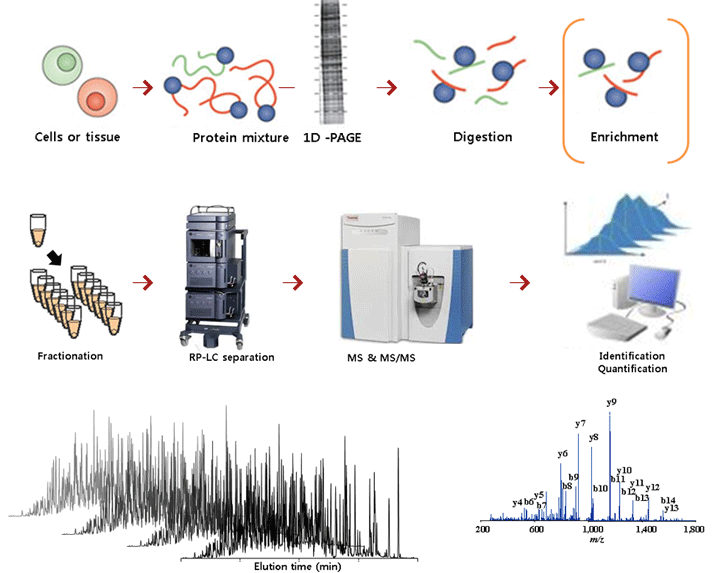
현재 두 질량분석시스템으로 질량분석을 지원합니다. 생명과학부 재원인 Thermo LTQ MS는 coomassie-stainable gel 및 양적으로 충분한 시료에, IBS RNA연구단 재원인Thermo Q-Exactive MS는 silver-stained gel 및 양적으로 제한된 시료의 단백질 동정 및 변형분석에 사용합니다. 이들 질량분석기의 in-let장치인 나노액체크로마토그래피의 성능은 자체 제작된 첨단 모세관 컬럼의 힘으로 검출감도 및 검출폭 측면에서 세계적 그룹과 어깨를 나란히 하는 수준입니다.
생명과학부 연구실 지원에 우선 순위를 두지만 서울대 내의 다른 연구실의 단백질 분석을 지원합니다. 외부연구소와 기업체의 경우, 생명과학부 연구실 지원에 차질이 가지 않는 선에서 지원할 수 있습니다. 단백질 질량분석 의뢰는 김선아 지원팀장에게 문의해 주시기 바랍니다 (02-880-4434).
1. Thermo LTQ MS
2005년에 생명과학부 재원으로 도입된ion trap 방식의 탄뎀질량분석기입니다. Coomssie-stainable gel band 의 단백질 동정 및 변형분석에 활용됩니다. 이온화장치를 개량하였고, 고성능 나노액체크로마토그래피와 in-house packed 모세관 컬럼을 사용하여 성능을 대폭 향상시켰습니다.
2005년에 생명과학부 재원으로 도입된ion trap 방식의 탄뎀질량분석기입니다. Coomssie-stainable gel band 의 단백질 동정 및 변형분석에 활용됩니다. 이온화장치를 개량하였고, 고성능 나노액체크로마토그래피와 in-house packed 모세관 컬럼을 사용하여 성능을 대폭 향상시켰습니다.
2. Thermo Q-Exactive MS
2013년에 IBS RNA연구단의 재원으로 도입된 장비로, quadrupole mass filter가 장착된 orbitrap 탄뎀질량분석기입니다. Orbitrap 고유의 장점인 질량스펙트럼의 분해능과 정확도가 매우 높을 뿐 아니라, 12 Hz의 빠른 HCD MS/MS가 가능하여 단백체학 연구 분야에서 기존 질량분석기보다 월등한 성능을 발휘합니다. 단순 단백질 동정을 위해 사용되기 보다는 systems biology 혹은 system-wide target discovery 연구, 그리고 SILAC 등의 quantitative proteomics를 위해 사용됩니다.
2013년에 IBS RNA연구단의 재원으로 도입된 장비로, quadrupole mass filter가 장착된 orbitrap 탄뎀질량분석기입니다. Orbitrap 고유의 장점인 질량스펙트럼의 분해능과 정확도가 매우 높을 뿐 아니라, 12 Hz의 빠른 HCD MS/MS가 가능하여 단백체학 연구 분야에서 기존 질량분석기보다 월등한 성능을 발휘합니다. 단순 단백질 동정을 위해 사용되기 보다는 systems biology 혹은 system-wide target discovery 연구, 그리고 SILAC 등의 quantitative proteomics를 위해 사용됩니다.
3. Agilent 6490 MS
2013년에 IBS RNA연구단의 재원으로 도입된 장비로, triple quadrupole (QQQ) 방식의 탄뎀질량분석기입니다. 위의 두 질량분석기는 단백질의 동정 및 변형분석, 단백질 정량분석에 두루 사용되지만, 이 장비는 단백질의 정량분석에 특화된 장비로서 월등한 재현성과 검출감도를 보유하고 있습니다. 세포 내에 미량 존재하여 일반 질량분석기로는 검출하지 못하는 단백질을 한 차원 아래까지 검출할 수 있으며, 또 Western blot assay을 수행할 수 없는 단백질의 정량이 가능합니다.
2013년에 IBS RNA연구단의 재원으로 도입된 장비로, triple quadrupole (QQQ) 방식의 탄뎀질량분석기입니다. 위의 두 질량분석기는 단백질의 동정 및 변형분석, 단백질 정량분석에 두루 사용되지만, 이 장비는 단백질의 정량분석에 특화된 장비로서 월등한 재현성과 검출감도를 보유하고 있습니다. 세포 내에 미량 존재하여 일반 질량분석기로는 검출하지 못하는 단백질을 한 차원 아래까지 검출할 수 있으며, 또 Western blot assay을 수행할 수 없는 단백질의 정량이 가능합니다.
4. Waters nanoAcquity
2013년에 IBS RNA연구단의 재원으로 도입된 장비로, 질량분석기의 in-let으로 단백질의 펩타이드를 고분해능으로 분리/농축하여 질량분석 감도를 높이는 역할을 담당합니다. 10,000 psi (690 bar)의 고압으로 이동상을 nanoflow 유속 (수백 nL/mn)으로 밀어주며, 분리의 재현성이 매우 뛰어난 장비입니다.
2013년에 IBS RNA연구단의 재원으로 도입된 장비로, 질량분석기의 in-let으로 단백질의 펩타이드를 고분해능으로 분리/농축하여 질량분석 감도를 높이는 역할을 담당합니다. 10,000 psi (690 bar)의 고압으로 이동상을 nanoflow 유속 (수백 nL/mn)으로 밀어주며, 분리의 재현성이 매우 뛰어난 장비입니다.
5. Thermo Ultimate RSLCnano
2014년에 IBS RNA연구단의 재원으로 도입된 장비로, 질량분석기의 in-let으로 사용되며 단백질의 펩타이드를 고분해능으로 분리/농축하여 질량분석 감도를 높이는 역할을 담당합니다. 14,500 psi (1,000 bar)의 초고압으로 이동상을 nanoflow 유속 (수백 nL/mn)으로 밀어줄 수 있어, sub 2 µm 충진물로 제작된 50 cm 이상의 초고성능 모세관 컬럼을 사용하는데 사용됩니다.
2014년에 IBS RNA연구단의 재원으로 도입된 장비로, 질량분석기의 in-let으로 사용되며 단백질의 펩타이드를 고분해능으로 분리/농축하여 질량분석 감도를 높이는 역할을 담당합니다. 14,500 psi (1,000 bar)의 초고압으로 이동상을 nanoflow 유속 (수백 nL/mn)으로 밀어줄 수 있어, sub 2 µm 충진물로 제작된 50 cm 이상의 초고성능 모세관 컬럼을 사용하는데 사용됩니다.
6. Agilent 1290 UPLC
18,000 psi (1,240 bar) 의 초고압으로 이동상을 capillary flow 에서 micro flow까지 흘려줄 수 있으며, DAD UV 검출기와 fraction collector를 겸비하여 고분해능으로 펩타이드를 fractionation하는데 주로 활용됩니다. Agilent 6490 MS의 in-let으로 사용되기도 합니다.
18,000 psi (1,240 bar) 의 초고압으로 이동상을 capillary flow 에서 micro flow까지 흘려줄 수 있으며, DAD UV 검출기와 fraction collector를 겸비하여 고분해능으로 펩타이드를 fractionation하는데 주로 활용됩니다. Agilent 6490 MS의 in-let으로 사용되기도 합니다.
7. Customized capillary column packing system
20,000 psi의 초고압을 지원하는 ISCO syringe pump를 기반으로 자체 모세관 컬럼 충진시스템을 구축하였습니다. 초고성능 모세관 컬럼을 자체 제작하여 질량분석 지원에 활용하고 있습니다.
20,000 psi의 초고압을 지원하는 ISCO syringe pump를 기반으로 자체 모세관 컬럼 충진시스템을 구축하였습니다. 초고성능 모세관 컬럼을 자체 제작하여 질량분석 지원에 활용하고 있습니다.
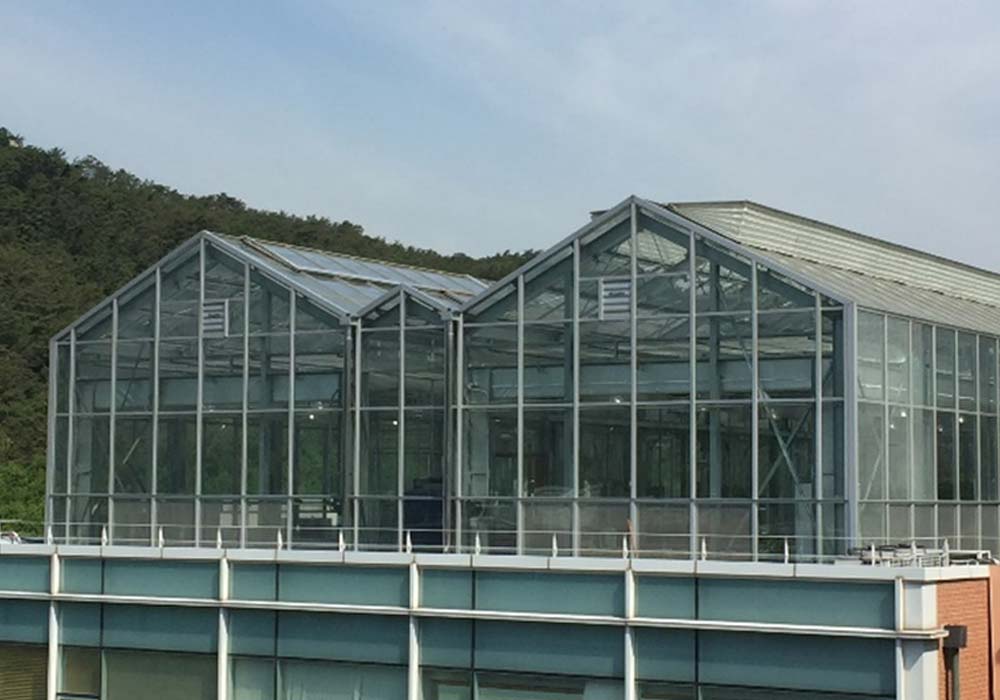
Plant Growth Facility
- Head Professor Lee, YUREE
- Contact 502-622
- Staff KIM, EUNJU
- Read more
The Goal of the Plant Growth Facility of the School of Biological Sciences is to achieve optimum plant growth environment through the entire year and provide excellent facilities in support of research and education.
Specific facility components include :
Specific facility components include :
• Greenhouse
newly built in Aug. 2014 , located on the rooftop of 502 building, total approximately 330m2 , consists of 3 units; two units for multi-purpose and one for rice only, equipped with the automatic control systems such as temperature/humidity control, window/insulating curtain control, etc.
newly built in Aug. 2014 , located on the rooftop of 502 building, total approximately 330m2 , consists of 3 units; two units for multi-purpose and one for rice only, equipped with the automatic control systems such as temperature/humidity control, window/insulating curtain control, etc.
• Plant growth room
located on the basement floor (502-B201) , approximately 33m2 , divided into 2units; each for long day conditions and short day conditions for Arabidopsis research.
For more information please email: epple112@snu.ac.kr
located on the basement floor (502-B201) , approximately 33m2 , divided into 2units; each for long day conditions and short day conditions for Arabidopsis research.
For more information please email: epple112@snu.ac.kr
